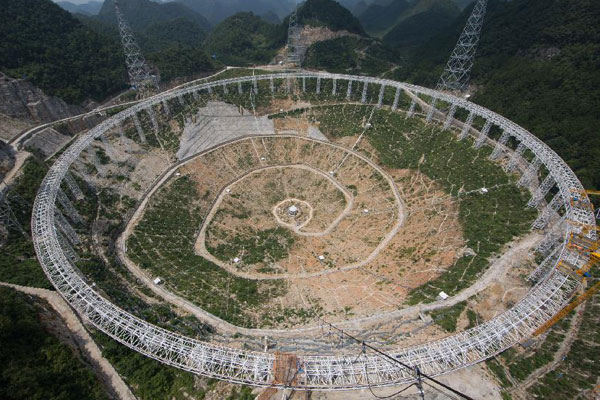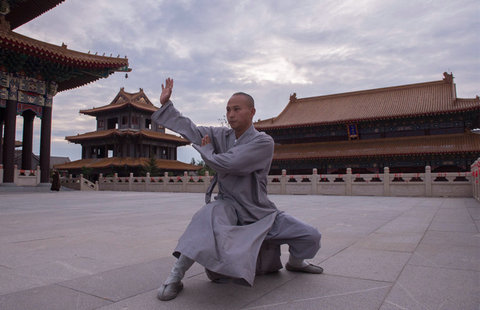Obama's Africa trip shows contrast in US, China foreign policies
Updated: 2015-07-29 13:09
By Chris Davis(China Daily USA)
|
||||||||
It's safe to say that Africa has not been on the top shelf of US foreign policy concerns. While China has been aggressively shoring up and expanding its ties with the continent - ties that go back centuries, Washington is finally ratcheting up the attention it pays to the continent's 54 countries.
Chinese media criticized US President Barak Obama's recent trip to Kenya and Ethiopia, suggesting it was a blatant knee-jerk reaction to China's broadening clout on the continent.
"The US used to be a dominant power in Africa," wrote columnist Liu Zhun in the Global Times, noting that trade volume between the two has fallen. "A change of position has touched the nerves of the US."
The US "obviously lacks a consistent Africa policy", he wrote, adding that it was "taking China as a rival" there.
It's true that China's economic ties with Africa have soared in recent years, with two-way trade hitting a record $200 billion in 2013, mainly due to Chinese imports of African oil and copper, according to The Associated Press.
Meanwhile, US trade with Africa fell to $85 billion in 2013, a result, some experts say, of the 2008 economic crisis and widespread security concerns.
Still, there does seem to be a growing, if belated, realization that Africa's growing economies deserve more attention from US investment, especially by the private sector.
Melissa Cook, founder and managing director of African Sunrise Partners and a member of the President's Advisory Council on Doing Business in Africa, was in Nairobi for Obama's visit. She said in a Skype interview from Kenya that in a lot of ways, a lot of the media got it all wrong.
Cook attended Obama's speech before the Global Entrepreneurship Summit and said he brought "positive attention to the country, in contrast to some of the - shall we call it - sloppier reporting that always focuses on the negative."
"I was in the UN compound where we had 1,400 people there for the summit and the amount of energy and positive feeling in this place was just unbelievable," she said. "Because you've got this hall filled with business people and investors and these young entrepreneurs who are the ones who are really making things happen."
"It was very encouraging to people who are trying to build businesses and nothing's easy for them, so to have the president of the United States come and wish them well and keep at it meant a lot," she said.
The US, Cook said, has a very clear policy in Africa of supporting investment as a means of creating jobs which will then create economic and political stability. She called it a combination of "diplomacy and commercial diplomacy".
"For all kinds of reasons, including providing global security and reducing the opportunity for terrorism, the government has a policy that's supportive of strong growth over here," she said.
By way of contrast, the US has "always tied together policy and support, whereas China just is after pure business. They've always had a clearly stated policy of non-intervention on the political front, and that's just how they operate," Cook explained.

"Obama was in the unique position to come here and say things to the Kenyans that may not have been as effective had they come from someone else. He made some very direct statements about supporting democracy and supporting human rights," she said. "The Chinese do not come here and talk about those things."
Cook said that anywhere she goes on the continent of Africa she can find plenty of political problems to talk about, but she is also finding companies that have new retail concepts, new food concepts and new technologies being implemented.
"Despite whatever political uncertainties there may be, these companies are forging on ahead and creating what I think will be very successful businesses," she said.
Looking around Nairobi these days, Cook said China's impact is plenty visible. China came in and took over construction and financing of the multi-billion-dollar standard-gauge railroad that will link the port of Mombasa with Nairobi and eventually Uganda, Burundi and South Sudan. It could be a game-changer for the economy of the whole region.
"You see a lot of Chinese construction companies involved, Chinese machinery brands," she said. "One of the great stories of China in Africa is bringing in more affordable priced goods."
Contact the writer at chrisdavis@chinadailyusa.com.
(China Daily USA 07/29/2015 page2)

 World's largest radio telescope being built
World's largest radio telescope being built Elvis Festival pays tribute to the King of Rock 'n' Roll
Elvis Festival pays tribute to the King of Rock 'n' Roll
 Four-color rice turns paddy field into artwork
Four-color rice turns paddy field into artwork
 Images capture modern life of a warrior monk
Images capture modern life of a warrior monk
 The world in photos: July 20 - 26
The world in photos: July 20 - 26
 Amazing landscape of China in white and black
Amazing landscape of China in white and black
 Across America over the week (July 17- July 23)
Across America over the week (July 17- July 23)
 Unusual but true: 'Love' conquers all
Unusual but true: 'Love' conquers all
Most Viewed
Editor's Picks

|

|

|

|

|

|
Today's Top News
Beijing condemns Somali attack, mourns deaths
Panda 'fakes pregnancy' to get better living conditions
China eyes deepened cooperation with overseas NGOs
Monster Hunt breaks Chinese box office record
Olympic bid panel cites city's merits
Astronomers discover most Earth-like planet yet
Seattle Chinatown leader killed in shooting
Flight details of Obama's Kenya trip leaked
US Weekly

|

|







